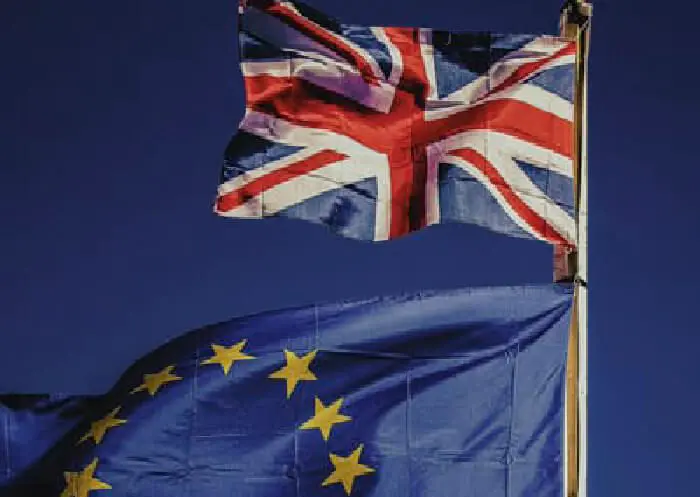UK Brexit minister Michael Gove and European Commission Vice President Maros Sefcovic are meeting in London later Thursday to try to smooth out the problems, but few expect a quick resolution.
LONDON: Breaking up is proving hard to do for Britain and the European Union, whose divorce deal is in choppy waters just six weeks after the UK made its economic split from the bloc.
UK Brexit minister Michael Gove and European Commission Vice President Maros Sefcovic are meeting in London later Thursday to try to smooth out the problems, but few expect a quick resolution.
The turbulence centers on Northern Ireland, whose complex status has been one of the trickiest issues in the UK-EU divorce.
Michel Barnier, the bloc’s chief negotiator during years of Brexit talks, said both sides “must be conscious of their responsibilities” to Northern Ireland.
“The situation has never been easy in Ireland and everything is complex,” he said at a European business summit on Thursday.
“I recommend personally to everybody on both sides to be responsible and take care.” Since Britain left the EU’s economic structures on Dec.31, goods moving between the UK and the bloc have faced customs and veterinary checks under the terms of a new trade deal.
Checks have also been imposed on some British goods going to Northern Ireland because it shares a border with EU member-state Ireland.
Those checks have unsettled the delicate political balance in Northern Ireland, a part of the U.K. where some people identify as British and some as Irish.
The new measures are designed to prevent a hard border being imposed between Ireland and the north — something that could undermine the Irish peace process — but they are opposed by pro-British Unionists, who say they drive a wedge between Northern Ireland and the rest of the UK.
Northern Ireland authorities halted veterinary checks and withdrew border staff from ports for several days this month after threatening graffiti appeared referring to port workers as targets.
The sensitivity of Northern Ireland’s status was underscored earlier this month when the EU briefly threatened to ban shipments of coronavirus vaccines to Northern Ireland amid a dispute with Anglo-Swedish drugmaker AstraZeneca.
That would have drawn a hard border between Northern Ireland and Ireland — exactly what the Brexit trade deal was crafted to avoid.
The EU quickly dropped the idea after British, Irish and Northern Ireland politicians expressed alarm.
But Britain has seized on the gaffe to accuse the EU of undermining the Brexit divorce agreement.
Prime Minister Boris Johnson’s spokesman, Jamie Davies, said the bloc’s move had caused “shock and anger” in Northern Ireland.
He said there was a need “to take urgent steps to restore confidence as a result.” The U.K. wants the EU to take a more light-touch approach to border checks, which have already led to shortages and delays in getting some goods to Northern Ireland.
Britain has asked for short-term grace periods that have delayed imposition of full red tape on supermarket supplies, parcels and medicines extended until at least 2023.
The EU says some economic friction is the inevitable outcome of Britain’s decision to leave the bloc’s single market and customs union, and insists the Northern Ireland Protocol can’t be significantly renegotiated.
In a letter to Gove before their meeting, Sefcovic pointed to “shortcomings” in Britain’s implementation of the agreement, saying border facilities were fully up and running and only limited checks were taking place.
Irish Prime Minister Micheal Martin urged both sides to “dial down the rhetoric.” “There are bound to be teething issues and teething problems,” he told Irish broadcaster RTE.







